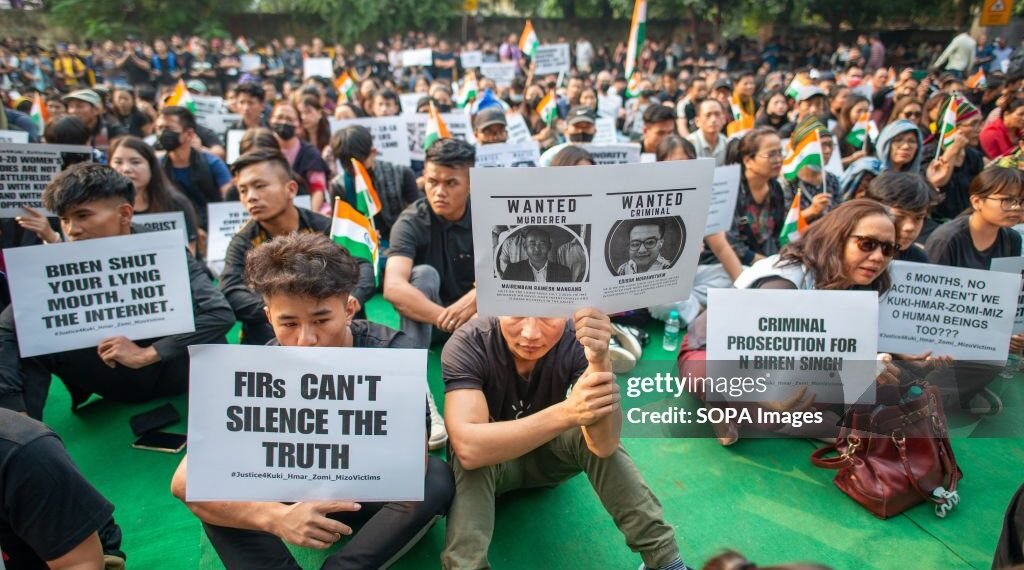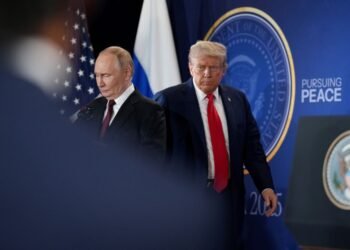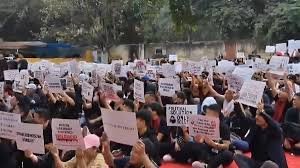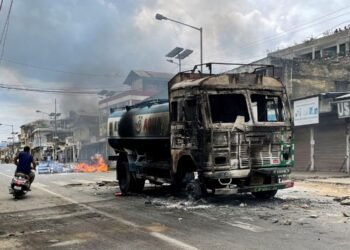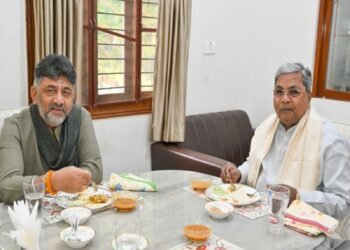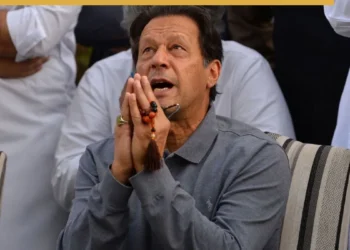Editor’s Note: As part of our ongoing commitment to serve as an advocacy platform for peace in Manipur, we continue to welcome “opinion” pieces from all communities. We encourage individuals to use this space to express their perspectives with sincerity and responsibility. We urge contributors to refrain from language that could be interpreted as inciting violence or hatred. In line with this initiative, we present a write-up by Dr, By Dr. Chinkholal Thangsing, the President, Lamka City of Hope. Please mail your write-up at: novinkn@gmail.com. Thank you, Navin Upadhyay
“As a people, we are called to stand together with courage and purpose. For Scripture reminds us, ‘If a house is divided against itself, that house cannot stand’ (Mark 3:25). Only in unity can we overcome the darkness before us and secure a future of hope and dignity.”
Throughout history, the Kuki-Zo people have been known for their unyielding resilience and courage, deeply rooted in the hills and valleys spanning present-day Northeast India, Myanmar, and Bangladesh. From generation to generation, our ancestors stood as vigilant guardians of these lands, defending their identity, culture, and dignity with unwavering resolve, even at immense personal and collective cost.
During the British colonial campaigns of the early 20th century, our people were branded as “rebels” simply because they refused to surrender their freedom and birthright. The Kuki Rebellion of 1917-1919 stands as a powerful testament to that spirit of defiance and sacrifice. Thousands were killed or imprisoned, entire villages were reduced to ashes, and revered chiefs were dethroned in acts of collective punishment meant to break our will. Yet, in that era of darkness, our unity remained our greatest weapon, carrying us through the brutalities of empire and ensuring our survival as a people with honor intact.
READ: In a Rebuff to China, Dalai Lama Says Tibet Will Choose His Successor
In independent India, as others progressed, our hills remained neglected, underdeveloped, and politically marginalized. Over decades, our people have endured:
- Encroachment on our ancestral lands, undermining our very identity,
- Dilution of our traditional governance systems, eroding self-determination,
- Underrepresentation in political and administrative forums, silencing our voice, and
- Persistent poverty, unemployment, and lack of education or economic opportunities, limiting the dreams of our youth.
But nothing in our past compares to the horror we have faced since May 2023 – a systematic, targeted, and brutal genocidal campaign against the Kuki-Zo people in Manipur. The scale and cruelty of this violence is beyond comprehension.
In these past three years:
- Hundreds of our people have been killed, many tortured and mutilated, including innocent women, children, and elders.
- Tens of thousands displaced overnight, forced to flee their ancestral lands, now living as refugees within their own homeland.
- Entire villages razed to the ground, homes looted, churches burned, and families shattered leaving deep scars of trauma and despair.
- Livelihoods systematically destroyed, with farms, shops, and businesses targeted to cripple our economic backbone.
- Youth robbed of their education, as schools remain closed, destroyed, or too dangerous to attend.
- Our faith attacked, with churches and Christian institutions desecrated, aiming to break our spiritual foundation.
- Our people humiliated and demonized in public narratives and media, portraying victims as aggressors to justify injustice.
Despite this suffering, when the world unites to silence or marginalize us, why do we continue to fight amongst ourselves?
“If we are divided, we are sure to perish. United, we can survive and thrive.”
Today, we stand at a dangerous crossroad – facing an existential crisis that is not merely political, but one of identity, dignity, and survival itself. The question before us is not about who among us is right or wrong, but whether our people as a whole will survive or perish.
Tribal Unity: Key to Protecting Land, Life, and Dignity (Part 1)#AdivasiUnity#TribalRights #LandNotForSale #IndigenousJustice#NewTribalDawn #PESA #FRA #SixthSchedule #VoiceOfTheForests #StopLandGrab https://t.co/5RWf4mqpLq
— POWER CORRIDORS (@power_corridors) June 29, 2025
We must reflect deeply:
- Why are we so quick to find faults among ourselves?
- Why do we hold grudges over personal and organizational interests when the entire nationhood of our people is at stake?
- Why do we waste precious energy on gossip, factionalism, and divisive rhetoric when now is the time to build, strategize, and protect our people?
Where are our wise elders, who once counselled clans to settle disputes with understanding and unity? Where are our moral and spiritual leaders, who taught us that “a house divided cannot stand”? Where are our right-thinking leaders, who place the welfare of the people above personal ambition and pride?
READ: Trump vs. Musk: Can the President Really Deport Elon?
History is teaching us a painful and urgent lesson: We must unite, or we will perish together.
In this journey towards justice and constitutional protection, we must also stand firmly behind our negotiators and representatives at the helm, who are engaging the Indian central government for our rightful demand of a separate administration in the form of a Union Territory (UT). Negotiations of this magnitude are never easy. They require courage to speak truth, wisdom to build trust, patience to endure challenges, and divine guidance to discern what is best for our people. These leaders carry the burden of an entire nation’s hopes and future on their shoulders. It is our duty to uphold them with our prayers, wise counsel, and unwavering unity, resisting every temptation to criticize prematurely or create distractions that weaken our collective position. They must know that the entire Kuki-Zo nation stands as one behind them, trusting them to speak with clarity, dignity, and strategic foresight to secure a lasting solution that guarantees our safety, rights, dignity, and identity within the Indian Union.
This is the time:
- To reflect deeply on whether our words, actions, and decisions are building our people’s strength or weakening it further.
- To reject blame games and public criticism, choosing instead to resolve differences with humility, maturity, and wisdom.
- To focus unwaveringly on our greater cause– securing constitutional protection, justice, and dignity for our people.
- To stand behind leaders who are wise, selfless, and courageous, those who seek unity and progress rather than division and personal gain.
- To rebuild trust across tribes, churches, organizations, and clans, setting aside egos and personal interests for the sake of our shared future.
- To seek God’s mercy, wisdom, and guidance, knowing that only through Him can we find true healing, justice, and lasting victory.
- To meaningfully engage our youth, women, and elders, ensuring that every voice is heard and every gift used in this historic journey.
- To embrace sacrifice, discipline, and strategic advocacy, remembering that freedom, dignity, and survival are earned through perseverance and courage, not granted freely.
- To pray unceasingly, understanding that faith without action is empty, and action without faith remains powerless.
The Question Before Us All
I do not claim to have all the answers. That is why I pose this solemn question to each and every one of us today:
How will we move forward to ensure the survival of our nation and secure the constitutional protection, dignity, and justice that our people deserve?
Will we rise as one – united in purpose, vision, and courage – or will we be remembered as a people who perished because we failed to stand together when it mattered most?
History is watching. The world is watching. God is watching.
May we rise together, so that our children and their children will one day look back and remember that when darkness covered our land, we chose unity over division, forgiveness over hatred, and rebuilding over despair. May they remember that we stood with dignity and courage as one Kuki-Zo people – unbreakable in our resolve and victorious in our faith.
How Do We Secure Constitutional Protection through a Union Territory with Legislature?
Securing constitutional protection, rights over our land, and the survival of our people in the form of self-governance under the central government as a Union Territory with legislature is a historic, complex, yet achievable goal. It requires a multi-pronged, disciplined, and united approach. The following pathways must be considered and pursued with clarity, wisdom, and resolve:
- Sustain and Strengthen Our United Stand for Union Territory with Legislature: Recognize that all sections of the Kuki-Zo society – community organizations, churches, youth, women’s groups, and political representatives – have already united behind the single, non-negotiable demand for a Union Territory with legislature. Focus now on maintaining this unity with discipline and purpose, resisting any attempts to create division or introduce competing agendas that could weaken our collective stand. Ensure that every public and private platform reinforces this shared demand with clarity and consistency, strengthening our credibility and moral authority before the nation and the world.
- Strengthen Negotiation Teams and Leadership Mandate: Empower and mandate a credible, inclusive, and strategically composed negotiation team to engage with the Indian central government. Ensure negotiators speak with one voice, have full community backing, and are guided by legal, constitutional, and strategic experts at every step.
- Strengthen and Amplify Existing Legal and Constitutional Submissions:Acknowledge and build upon the legally prepared memorandum already submitted by the SoO groups, ensuring its arguments remain central to all advocacy and negotiations. Engage the legal firm to review, refine, and expand these submissions by incorporating updated evidence of recent atrocities, systematic denial of security, rights, and equal treatment.
- Mobilize Nationwide and International AdvocacyLaunch coordinated campaigns to sensitize national political parties, parliamentarians, and policymakers to the plight and aspirations of the Kuki-Zo people. Engage media strategically to tell the true story, countering false narratives and highlighting the legitimate nature of the demand.
Reach out to international human rights bodies, diaspora, and friendly governments to create moral, diplomatic, and humanitarian support without compromising national interests. - Strengthen Internal Governance and Readiness: Establish shadow administrative committees and expert groups to plan future governance structures, legal systems, land rights protection, and economic development under UT. Demonstrate preparedness for responsible self-governance under the Indian Union, assuring stability, peace, and prosperity for all communities within the territory.
- Engage Spiritual and Moral Leadership: Seek the guidance, prayers, and active support of all churches and faith leaders to uphold the spiritual strength and moral compass of this historic journey. Emphasize that without divine favor, no human plan can succeed; and without moral integrity, no victory will be sustained.
- Maintain Strategic Patience and Perseverance: Understand that constitutional changes and territorial restructuring are protracted processes requiring sustained advocacy, negotiation, legal battles, and mass mobilization. Resist provocation or frustration that leads to internal divisions or violence, which will undermine the legitimacy of the demand.
Final Reflection
This is the time for the Kuki-Zo people to rise with a single-minded purpose, disciplined strategy, and unwavering faith. Our demand is not born out of ambition, but out of necessity – to protect our land, dignity, rights, and survival as a people under the constitutional framework of India.
“When a people stand united in righteous cause, no force on earth can silence their voice or erase their identity.”
May we act wisely and courageously to secure a future where our children can live in dignity, safety, and freedom, under a governance system that protects and empowers them as rightful citizens of this nation.


